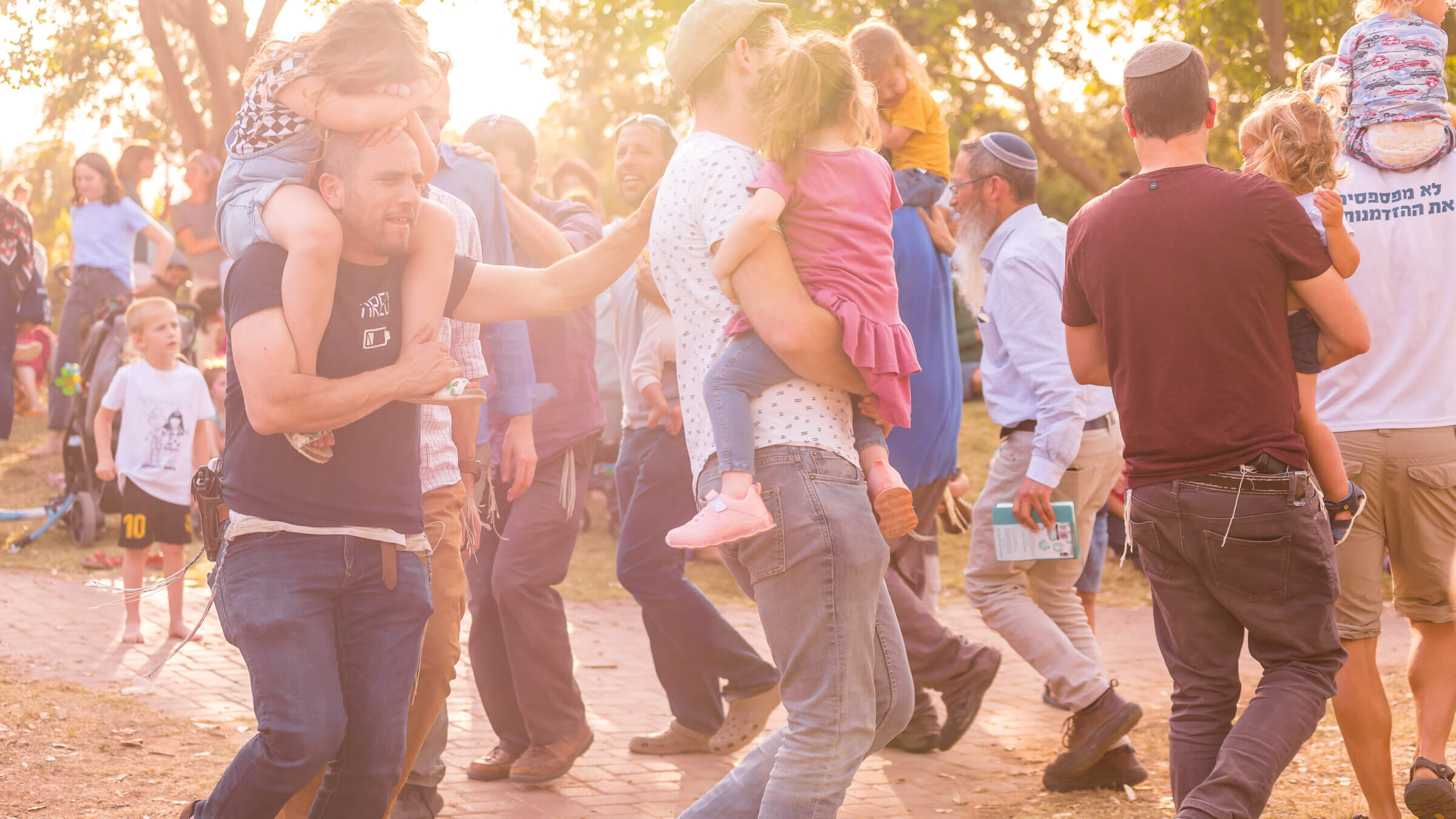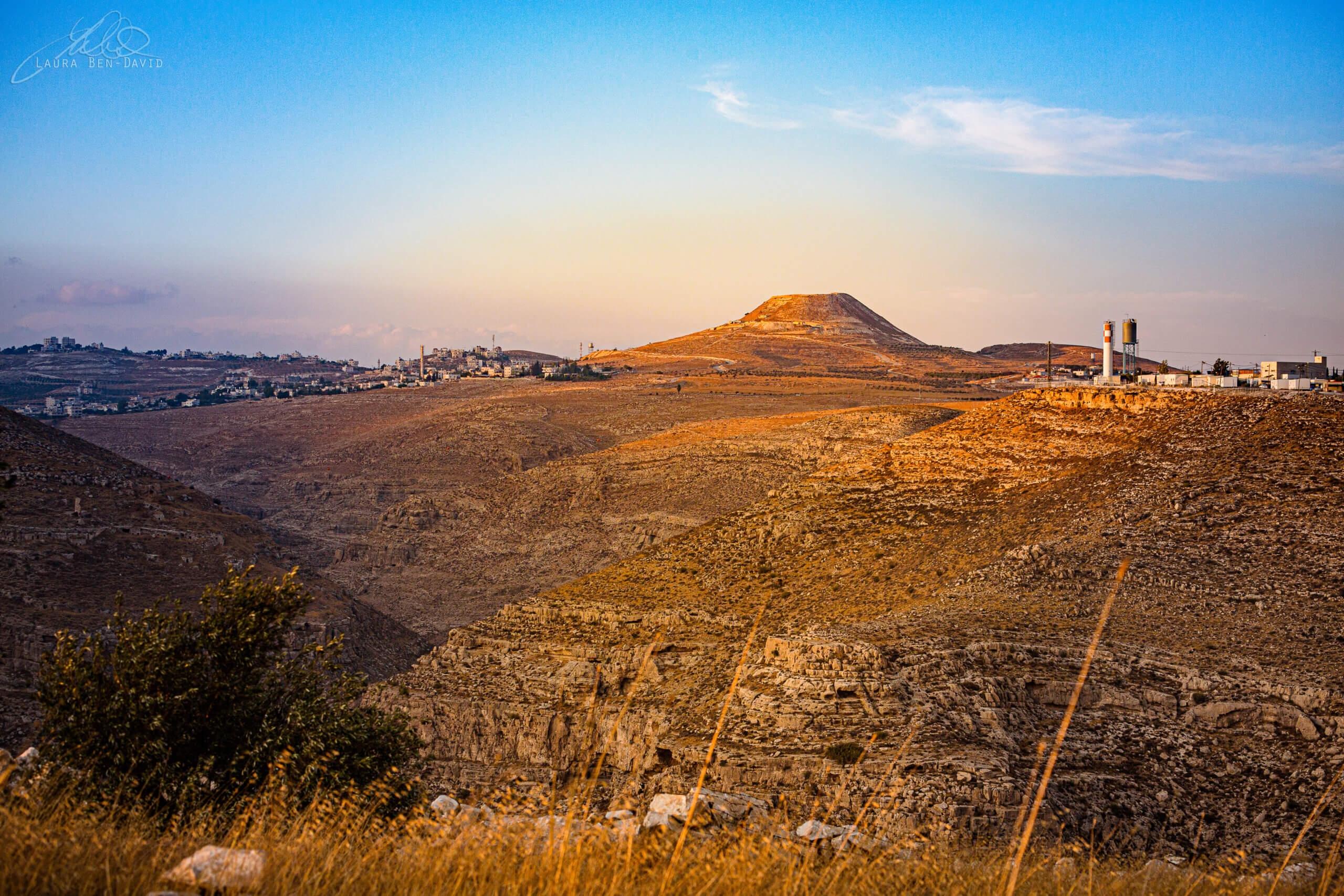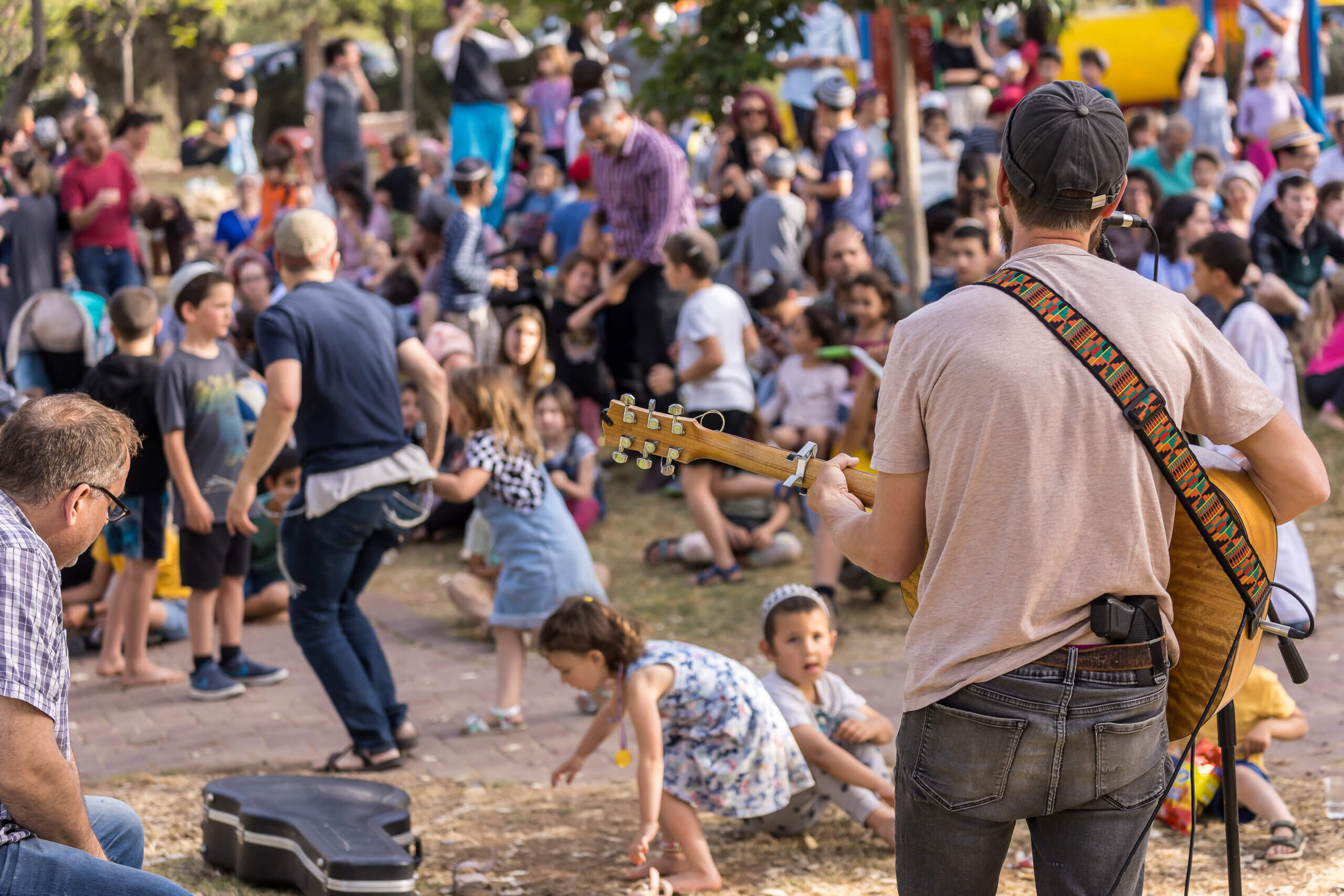Even in Israel, you’re never prepared for a terror attack
Over the last few months, there have been a wave of deadly terror attacks around the country. Even so, I was not prepared for it to happen in my peaceful town.

Tekoa residents at a “Irua Hodaya,” a special evening of thanks, after a terror attack in their town in May 2022. Photo by Laura Ben-David
My quiet night in was shattered by a phone call.
My son-in-law, who works in security, doesn’t usually randomly call me. I couldn’t answer just then.
I texted, “On phone. Everything okay?”
“R u home? There’s a pigua (terror attack),” came his immediate reply.
Over the last few months, there have been a wave of deadly terror attacks around Israel. Even so, I was not prepared for it to happen in my peaceful town.
My brain couldn’t — or wouldn’t — compute that my son-in-law had made a special call to me.
“I’m home. Where?” I texted back, only partially concerned.
“In Tekoa. You and Maya STAY HOME,” came the reply.
But how could it be? I hadn’t heard a thing about it from anyone. My sluggish brain tried computing a million things at once. As I locked my doors and windows, I realized that no one else knew yet — and people were out and about. None of my kids were with me, so I had but myself to worry about. But there were tons of kids outside!
I quickly sent a barely comprehensible message to some of the local WhatsApp groups telling people to go home, to get their kids inside and lock their doors, without any explanation. I think they thought I lost my mind, but within minutes, the official — and very unofficial — messages started streaming in.
“Terrorists in the community!”
“Security situation happening now! Lock your doors and windows and enter a safe room.”

And many more messages, often with totally conflicting information. In Israel, well before official reports come out, we depend on WhatsApp to share information about what’s unfolding in real time. Often, that results in information being shared well before it can be verified.
I don’t remember when exactly it occurred to me to put WhatsApp down and close the blinds and turn off the inside lights. Nothing was automatic or instinctive. In fact, someone had to literally tell me, “get your gun.” So much for adrenaline.
Strange sirens started sounding. There were unintelligible words being announced, but I figured they were telling people to get inside and stay there.
I wrote an initial tweet to let the world know what was happening.
Omg reports of an attack. Here. In Tekoa. Where I am. Doors locked. This. Is. Insane. #terror #israel
— Laura Ben-David (@LauraBenDavd) May 8, 2022
There were many long, anxiety-filled minutes where we knew that a terrorist had actually gotten into the neighborhood, we knew that he had been killed, but we did not know if there were others — and we did not know if anyone had been attacked before he was stopped.
As the events unfolded, I shared updates on social media. I was alone in the apartment and called my boyfriend, halfway across the world, who stayed on the phone with me for hours. Even if we weren’t speaking, just having someone there “with” me was so necessary; he literally kept me sane.
Finally, almost an hour and a half after that first text message, I was able to put out this tweet:
“So many different versions of what happened… what I can say for sure is a terrorist tried to attack Jews here in Tekoa. And got killed in the process. Thankfully without hurting anyone. Physically, anyway.”
So many different versions of what happened… what I can say for sure is a terrorist tried to attack Jews here in Tekoa. And got killed in the process. Thankfully without hurting anyone. Physically, anyway.
— Laura Ben-David (@LauraBenDavd) May 8, 2022
For most of the night, I received an avalanche of messages and calls from friends and family, and people I hadn’t spoken to in ages (or ever) reaching out to make sure I was okay. It was truly heartwarming.
My 12-year-old daughter was at her dad’s house that night. Suddenly, I received an email from her school instructing us to speak to our kids about what happened so they are prepared for the next day.
I suddenly realized that my now-sleeping-daughter was probably blissfully unaware of the whole thing and needed to be prepared. I spoke with her dad, who made sure to tell her about it in the morning before school.
It’s a good thing he did: it turns out most of the girls in my daughter’s class had experienced the whole attack in some way.
A Tekoa resident, who happens to be a civilian member of the security team, had spotted a Palestinian climbing a fence meters from his home. He sent his family indoors, grabbed his weapon, and found the terrorist coming at him with a knife, at which point the resident shot and killed the intruder.
His daughter Roni happens to be one of my daughter’s friends in her 7th grade class. Roni saw and filmed the entire incident on her phone.
Today my 12 yo told me how her friend & classmate – the daughter of the guy who stopped the terrorist in Tekoa last night – saw it all from her window. And recounted it to the class… #Israel #terror
— Laura Ben-David (@LauraBenDavd) May 9, 2022
Israeli kids seem to be made of tougher stuff. Like a callus that forms on the skin from friction, Israelis have developed resilience from the many pressures of living in a challenging neighborhood.
People often ask me if I feel safe and secure where I live in Tekoa — I do. Or at least, I always have. I do have a gun, but I got it mainly for the long empty roads; I’m a single mom and I often go places by myself.

But walking around in my neighborhood, I’ve always felt perfectly safe. It’s the only place I wouldn’t bring my gun.
Even with the tension around Israel now, in Tekoa, there’s continued to be a feeling of security. People let their kids roam everywhere. Now, that feeling of safety in Tekoa is shattered.
But the people in Tekoa are not shattered. We picked ourselves up and carried on, together.
The evening after the terror attack, hundreds of people came out for a special Irua Hodaya, an evening of thanks.
During the attack, people were isolated from neighbors and friends; each person had to deal with the fear and uncertainty on their own.
But this event was the opposite. We were all out, singing and even dancing. Crying. Talking. Sharing. Encouraging. Living.
Together.
To contact the author, email [email protected].
























